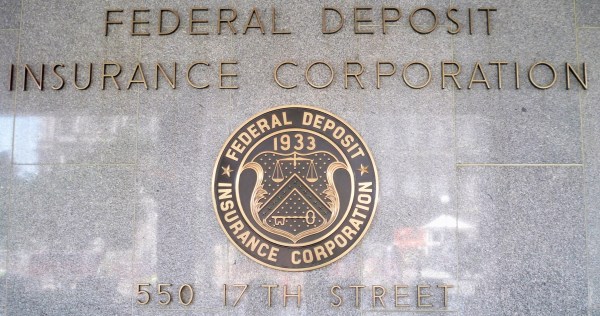Dcode takes fintech and blockchain from hype to reality

Financial fraud, payments, identity solutions, and secure transfer of data are critical components for every major U.S financial institution. In the recent past, the financial industry began rapidly driving to more modern technology in all of these areas in order to meet the demands of consumers, competition and regulations. In fact, a whole vertical of technologies referred to as fintech, has emerged from this demand. Even more recently, applications of blockchain have taken off in the fintech world, showing tremendous promise to revolutionize entire industries from financial to insurance and health care.
So what does this have to do with government? Many of the challenges the government faces are not too dissimilar from that of the financial industry. Financial fraud, identity management, secure data transfer, and even open data are challenges almost every agency and thousands of missions face. The government is an equally large and legacy vertical that should make it a priority to keep pace.
Can fintech and blockchain solutions help agencies improve government’s ability to provide services to citizens, regulate more effectively, and manage its own internal operations — or is it mostly hype?
Dcode, an accelerator program for emerging technology companies entering the federal market, wants to help agencies realize the potential of these technologies. On Dec. 12, Dcode will host Demo Day for their fintech and blockchain cohort to showcase the companies’ products, explain use cases for federal government and facilitate discussion with key government stakeholders.
FedScoop caught up with, Meagan Metzger, the founder of Dcode, about the role of financial technologies in government and what to expect at their Demo Day event next week. The interview has been edited for length and clarity.
FedScoop: Why are fintech solutions so important for the federal government right
now?
Meagan Metzger: There are multiple reasons we chose to focus in the area. First, to put it in basic terms, nothing is more central to the operation of government than budgeting and allocation of funding to programs. If we had perfect information around the financials of government, the performance, ROI, and inefficiency of government would be much easier to determine. Financial technologies provide that foundation for better accountability and a more seamless flow of money.
Our fintech companies make it easier for government to track and visualize budgets, make payments, manage travel and charge card programs, and make the data related to these activities more useful to civil servants. We aren’t talking about small problems, but rather key issues that could have huge impacts on the way government works. The phrase, “follow the money,” is well known for good reason.
Beyond the financial use cases of government, many technologies core to the financial industry (e.g. identity solutions, advanced analytics) are also crucial to the future of government. The government has a great responsibility to protect its constituents’ identities and be able to ensure you are who you say you are when interacting with government. Our current class has a few solutions that are some of the leading products globally in this space.
FS: Is the government ready to adopt blockchain or is it just hype?
MM: From what we’ve seen, yes, it is. We’ve definitely learned a lot about the space and we shared some of those thoughts with you all in a previous blog. In terms of readiness, we’ve seen great interest from government and are confident that many agencies see the value blockchain could deliver.
Readiness can mean two different things and agencies need to be both culturally ready and also technically ready. Digitization is key to adoption and digital transformation is as a key to getting value out of blockchain applications. We worked hard to ensure our blockchain companies had strong use cases for government around sharing data or ensuring privacy and security for transactions. Additionally, we know that encryption is an extremely critical piece of the puzzle and we were sure to identify companies that had deep expertise in this space and provided solutions to make blockchain more secure for government.
FS: What can we look forward to at Demo Day on December 12?
MM: Demo Day is an exciting event and an opportunity for government to see some incredible technologies and learn about where our companies’ products can solve challenges within their agency. We have been working with this cohort of companies for three months; preparing them for the federal market.
Beyond the demos, we have insightful conversations with Federal agencies to demonstrate how they are and plan to effectively implement these modern technologies. These panels offer lessons learned from their experiences and help show how to make them a reality – and get past the hype bubble.
FS: How is Dcode working to overcome some of the barriers faced by emerging technology companies in the fintech or blockchain space?
MM: Technology adoption is more often than not cultural more than anything else. Exposure to new applications of technology instead of the description of the actual “tech” is a great way to break through that barrier.
Federal agencies don’t always understand the possibilities that the tech brings to their operations or how to successfully get to them, but know where value can be delivered. And private companies are daunted by vastness of the public sector and just need the first creative customer to say, “let’s try this.”
By bringing everyone to the table for an event like Demo Day, it gives both sides an opportunity to learn about the other side and get rid of the uncertainty that both parties have for one another.
FS: Who should plan to attend Demo Day?
MM: We welcome anyone in government but would love to see individuals with a role in technology, budgeting, financial oversight, payments, and procurement at all levels. We welcome private companies who are looking to incorporate fintech and blockchain into their federal client work for any of the use cases I described above. The event is free for federal employees and is considered a widely attended event so all are welcome. People can register here to join us.




